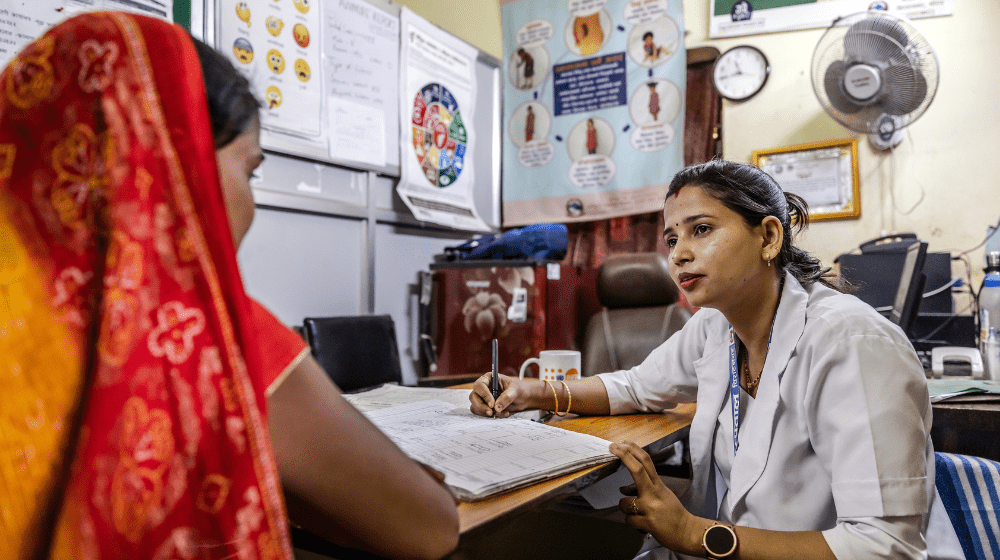At the side of the main hospital in Biratnagar in the eastern province of Koshi tucked away behind some parked ambulances sits the small office of Kriti Gupta and her support staff. All three are nurses working at this one-stop crisis management centre, a walk-in and referral support centre for survivors of gender-based violence that are supported by a UNFPA in partnership with the Royal Norwegian Embassy in Kathmandu and Swiss Agency for Development Cooperation. It is one of over 80 such centres in Nepal and it fulfils a crucial role.
A gender-based violence survivor has returned to consult with Kriti. A mother of three children she says the support she has received has given her the lifeline she needed after feeling trapped in her marriage in a cycle of violence. “When I came to the centre, I didn’t even know that violence against me was unacceptable and I have experienced continued violence since I married five years ago from my husband.” She continues “With support and advice I have now moved into my parents and I am learning a lot about myself and feel safe.”
Kriti says she receives on average 30 such cases each week. Many of the gender-based violence survivors that arrive at the crisis centres are referred there by community psychosocial workers who are volunteers trained to identify signs of violence in the community and offer advice to women on where they are able to access support.
Following an initial triage session, a survivor is able to receive a medical examination to check for injuries, and the trained staff record case files, and if required can refer a woman to appropriate support services that includes assistance ranging from medical services, legal support and shelters as well as dispute resolution actors in local authorities. Psychosocial support services are also available in these centres and counselling provides support to survivors through repeat visits and follow-up.
Kriti Gupta explains “These services are provided free of cost and they are very important. Some of these cases are very critical and women feel hopeless. Many incidents happen in the home and not just the women, but also the children, are impacted.” She continues “Part of our challenge is women are not empowered. Women have low self-esteem and face challenges to confront violence because of their dependence on the perpetrator. They feel there is no way out.”
Building trust in communities is a crucial role of community psychosocial workers, and they provide frequent home visits, and regular community awareness raising sessions. Barsha Karki, a volunteer in Koshi province explains her role “We have learnt how to identify families at risk through our community networks and outreach which we conduct two or three times per week. When we spot a case, we are able to direct that survivor in the right direction, to help resolve the conflict.”
As Kriti closes the session with the visiting women she glances sideways as she says “The encouragement we get and relief I see on these women’s faces gives me great happiness.” She continues “men are not born violent, but they develop this as they grow up in the family environment and one challenge, we face is violence can be normalized and carried down to the children and future generations.”
The survivor in front of her today agrees.
“I come from a family of brothers and we are a happy family and although I find it difficult to think about the future following my experience, I would like my sons to dream for me and I do not want to witness violence further in their lives."
With the continued support from the centre as well as her parents the cycle of violence experienced by this woman is broken and, as everyone in the small consultation room agrees, the work of the one-stop crisis management centres is a critical point of contact for survivors.


